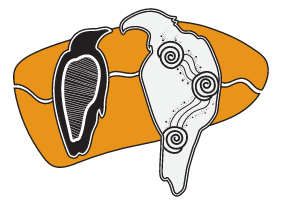What is yarning?
November 27, 2023
If you’ve been on a wawa biik experience, you would have had plenty of yarns. Yarning is more than a conversation or a story – it’s a deeply cultural way of learning, sharing and connecting. For thousands of generations the tradition of yarning has been practiced by our Taungurung Ancestors and First Nations Peoples across Australia. Today it is a big part of our culture– in sharing knowledge, story, experience, and building relationships.
Yarning is a way of connecting and purposefully sharing knowledge through narrative. It can include anecdotes, stories and experiences, plus if you’ve met any of our wawa biik guides – a good laugh. Yarns are typically non-linear and free flowing – so that means that topics and themes may seemingly go off on tangents, but these themes are often revisited, allowing for connections and learnings to surface as different parts of the yarn come together.
Yarning is just as much about sharing knowledge as it is for building strong relationships. Cultural protocols create a safe space for yarning between people – ‘active listening, mutual respect and building on what others have said rather than openly contradicting them’ (Yunkaporta 2019, 131) is incredibly important, enabling the flow to respect different points of view.
Aunt Jo on the importance of yarning on tour:
Our wawa biik experiences are built on dhumbak gadhaba (yarning together). We create a safe space for everyone to share and be part of the conversation. We acknowledge that we are all coming to biik (Country) from different places, experiences, understanding and knowledge and that’s ok. Our yarns are about sharing our culture, story and experience but this can only happen when we are there respecting each other, listening to each other, and to biik, our Country, so that we can walk together.
To keep learning about yarning see:
Atkinson, P, Baird, M & Adams, K 2021, ‘Are you really using Yarning research? Mapping Social and Family Yarning to Strengthen Yarning research quality’, AlterNative, 17 (2), 191 – 201.
Yunkaporta, T, 2019, Sand Talk: How Indigenous Thinking Can Save the World, The Text Publishing Company, Melbourne Australia
